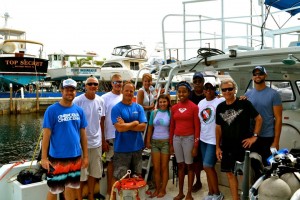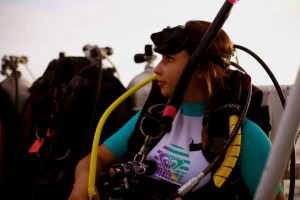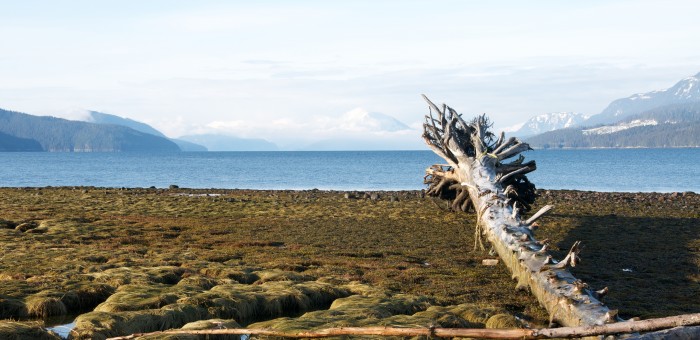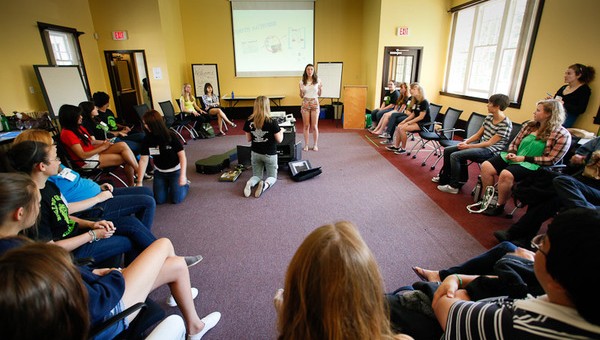Issues & Community Blog - Andrew Weaver: A Climate for Hope - Page 152
Robyn Allan’s Withdrawal from Pipeline Hearings gives Urgency for Province to do the Same
Media Statement – May 19, 2015
Allan’s Withdrawal from Pipeline Hearings gives Urgency for Province to do the Same
For Immediate Release
Andrew Weaver, MLA for Oak Bay-Gordon Head and Deputy Leader of the B.C. Green Party, says that Robyn Allan’s withdrawal from the National Energy Board hearings on the Trans Mountain pipeline gives new urgency to his call that the provincial government pull out of the federal hearings and hold its own made-in-BC review.
“Robyn Allan was one of the real leaders in the Trans Mountain pipeline hearings,” says Andrew Weaver. “When someone as credible and as thoughtful as Robyn Allan writes such a scathing review of this process, we’d be wise to listen.”
Allan’s withdrawal comes just one month after the English Bay oil spill that saw several Vancouver beaches closed due to human health risks from the toxic oil slick. A recent report commissioned by the City of Vancouver emphasised the dire consequences for marine life should a larger spill occur.
An economist and former CEO of ICBC, Allan has been one of the most active intervenors in the NEB hearings. When it was discovered that oral cross-examination had been excluded from the review, Allan led intervenors in what was ultimately an unsuccessful effort to get it reinstated. The lack of oral cross-examination has been described as one of the deepest flaws in the hearing process, seriously undermining intervenors’ ability to evaluate Trans Mountain’s proposal.
Weaver is currently the only B.C. MLA with intervenor status in the hearings. He has been calling on the B.C. government to pull out and hold their own review process for more than six months.
“British Columbians have rightfully lost confidence in the Trans Mountain hearings. Our coastline is too important to leave up to such a flawed process. It’s time for the province to withdraw.”
Last week, Weaver tabled a Private Member’s Bill designed to help British Columbians regain control over the approval of oil pipelines. If passed, the bill would provide an additional tool to residences to force the B.C. government to pull out of the Federal-Provincial Environmental Assessment Equivalency Agreement and hold its own provincial review process.
-30-
Mat Wright
Press Secretary – Andrew Weaver MLA
Cell: 250 216 3382
Mat.wright@leg.bc.ca
Twitter: @MatVic
Parliament Buildings
Room 027C
Victoria BC V8V 1X4
The staggering importance of a little fish you probably haven’t heard of
If you look at the base of the B.C. marine ecosystem, you’ll find a funny little fish with a lot of names – eulachon, oulachon, oolichan, hooligan, ooligan, candlefish. This species is critically important to the viability of numerous other species in our coastal waters, but has been quietly plummeting, with stocks down by ~98%. While economical, effective, and simple solutions to environmental crises may be few and far between, scientists in Oregon seem to have found an answer to the plight of the eulachon. The results are preliminary, but promising and word is spreading quickly through the fishing industry. To understand why this innovative research is so exciting and encouraging, we start near the bottom of the marine food chain with an examination of a fish of staggering importance.
Eulachon, a species of smelt that spawn in a limited number of rivers on the West Coast, spend most of their three-year life cycle in the marine environment where, much like herring, they play a pivotal role in sustaining the coastal food chain. As a forage fish, eulachon are a foundational species that feed hundreds of different types of animals. From salmon to marine birds, lingcod to killer whales, sea lions to eagles, nearly every marine animal in BC relies on forage fish as principal aspect of their diet.
 Eulachon returning to spawn in the Columbia River. Photo by Sam Beebe, @sbeebe, CC-BY-2.0
Eulachon returning to spawn in the Columbia River. Photo by Sam Beebe, @sbeebe, CC-BY-2.0
Eulachon are vitally important to First Nations’ culture too; harvests are used for food, social, and ceremonial purposes. Eulachon’s high oil content has made them an incredibly valuable source of nutrients for coastal communities – it also means they’ll burn like a candle if lit on fire, which, logically enough, has earned them the name “candle fish.” For thousands of years, Coastal First Nations rendered eulachons into a grease, the health benefits and longevity of which made it a staple aspect of their diet. It was a coveted commodity traded between communities and carried in cedar boxes across well-trodden “grease trails” – the most famous of which stretches from Bella Coola to Quesnel.
 Audry Duncan from the Haisla Nation setting up eulachon in a smoker. Photo by Sam Beebe, @sbeebe, CC-BY-2.0
Audry Duncan from the Haisla Nation setting up eulachon in a smoker. Photo by Sam Beebe, @sbeebe, CC-BY-2.0
Although there are still a few rivers, such as the Klinaklini and Kingcome that have strong runs, the eulachon population coast-wide in British Columbia is estimated to have declined by 98 per cent.
As a result, the Committee on the Status of Endangered Wildlife in Canada has listed the Fraser River eulachon population as endangered, the Central Pacific Coast population as endangered, and the Nass/Skeena Rivers population as a species of special concern.
Despite their ecological and cultural importance, there are significant knowledge gaps about eulachon’s basic biology, migration routes, and historical spawning patterns. Unlike salmon, which are studied extensively, eulachon have little direct commercial market value (none currently as the fishery is now closed – though at one point there were active eulachon fisheries on the Fraser, Nass, Skeena, Klinaklini, and Kingcome Rivers). Intrinsically and indirectly, of course, they are invaluable and feed countless other market species. Given the constrained level of scientific attention given to eulachon, the Department of Fisheries and Oceans Canada (DFO) says it is difficult to conclusively pin-point the cause of their population crash. Instead, their decline has been linked to a variety of activities, such as the marine transportation of oil, natural gas, and toxic chemicals, estuary alteration, shoreline development, industrial runoff, agricultural pollution, trawl fisheries, and forestry activity.
According to recent egg and larval surveys in the Fraser River, DFO reports eulachon abundance as being at an all-time low. Considering the diversity between localized pressures, however, DFO notes that it is “unlikely that such threats would explain the nearly synchronous coast-wide decline of eulachon that has occurred.”
Though certain threats, it is worth noting, have been more pervasive and persistent. Many believe that the shrimp trawl fishery, for example, is responsible for much of the eulachon collapse.
Eulachon are prone to getting caught in mid-water and bottom nets trawling for other species, like the ones used to harvest shrimp. Virtually every eulachon that hits the deck of a fishing vessel will die, according to DFO’s report, and another 60-70% of the fish who escape through the net will be killed as “collateral damage”.
Monitoring indicates that in‐season eulachon bycatch estimates have decreased over time, dropping from 22,406 pounds in 2001 to 8,818 pounds in 2005, and less than 2,205 pounds since 2006. It is hard not to speculate, however, that the reason fewer eulachon are being caught in shrimp nets is because there are fewer of them around to begin with, as indicated by this DFO graph from 2007.
 Fraser eulachon spawning stock biomass from 1995 to 2007 estimated by egg and larval survey at Fraser sampling locations.
Fraser eulachon spawning stock biomass from 1995 to 2007 estimated by egg and larval survey at Fraser sampling locations.
A population dynamics model conducted by DFO for the Fraser river eulachon run indicated that even a small removal or increased mortality rate (5t of the weakest cycle line) would significantly impair any potential for recovery. “Given the large uncertainty regarding magnitude of threats to the Eulachon,” the report continued, “minimal allowable harm should be permitted at this time, and be reduced below current levels as much as possible.”
DFO also says that “climate change effects may impact both the marine and freshwater habitats.” The exceptionally large and warm expanse of water currently stretching across the North Pacific Ocean is, unfortunately, making this look quite likely. “Right now it’s super warm all the way across the Pacific to Japan,” said Bill Peterson, an oceanographer with NOAA’s Northwest Fisheries Science Center in Newport, Ore. Not since records began has the region of the North Pacific Ocean been so warm for so long, the Northwest Fisheries Science Center reported. “The warm expanse has been characterized by sea surface temperatures as much as three degrees C (about 5.4 degrees F) higher than average, lasting for months, and appears on large- scale temperature maps as a red-orange mass of warm water many hundreds of miles across.”
 Image from Northwest Fisheries Science Center illustrating the expanse of warm water stretching across the Gulf of Alaska and Bering Sea.
Image from Northwest Fisheries Science Center illustrating the expanse of warm water stretching across the Gulf of Alaska and Bering Sea.
The mistreatment of eulachon stocks in B.C. is an environmental and cultural tragedy, to say the least. Forage fish like herring and eulachon form a pillar that holds up the entire coastal ecosystem, yet for decades they have been hastily killed as bycatch and chucked overboard by the tonne, with little consideration for the consequences.
Yet all is not lost. Scientists in Oregon seem to have hit upon an effective and low-cost solution – they are lighting up the shrimp nets. Funded by a grant from the National Oceanic and Atmospheric Administration, researchers attached 10 green Lindgren-Pitman lights to the fishing line of each net. After 42 tows, the researchers found that the illuminated net caught 90% fewer eulachon than the regular trawl gear, but roughly the same amount of shrimp.
Image from NOAA, Left: A pink shrimp haul without the use of LED lights shows Eulachon bycatch. Right: The results of LED lights hung on the trawl lines. LEDs have significantly reduced bycatch of threatened Eulachon as well as other fish by showing where the fish can escape the net.
Specific light placement is key, though, as some variations actually increased bycatch levels. “The new technique was shown to be effective when the lights were placed four feet apart across the center third of the footrope, an area near the bottom of the trawl that keeps the net open as it moves through the water. Researchers caution shrimpers to not place the lights around the rigid-grate bycatch reduction device, or BRD, as it actually decreased the effectiveness of the BRD for eulachon,” the NOAA report reads.
Results were so dramatic, the researchers immediately encouraged all shrimpers to start testing the technique. Within two months nearly every vessel across the border was using the illuminated net method, reporting very large reduction in bycatch of small demersal fish, but eulachon in particular.
When contacted to ask if the B.C. shrimping industry was planning on adopting a similar bycatch reduction strategy, DFO said they are waiting to see the published results from the Oregon studies but they have had “initial discussions with the B.C. trawl industry and they have expressed an interest in testing this technique. Further discussion is expected.”
Eulachon are of vital importance to the marine ecosystem on the West Coast, and to First Nations. Urgent action needs to be taken to help these stocks recover. And a good start might be as simple as switching on some underwater lights.
Banner Image: Eulachon habitat at Kitamaat Village beach. Photo by Sam Beebe, @sbeebe, CC-BY-2.0
Government takes privacy issues in Bill 20 to new level with proposed amendment.
In an earlier post I addressed the reason why I was opposing Bill 20: Election Amendment Act 2015. As mentioned earlier, Bill 20 implements a number of the recommendations made by the Chief Electoral Officer in his October 2014 report. However, only one of the Chief Electoral Officer’s three priority recommendations was implemented, and that concerned providing flexibility in opportunities for advance voting. One egregious addition to the bill not recommended by the Chief Electoral Officer and opposed by the Privacy Commissioner is new language that allowed political parties to obtain a list of voters that indicates which voters on the list voted in a previous general election. This list would be available between general elections.
Today in the legislature we debated the bill at committee stage. Government introduced an amendment that, in an attempt to create a level playing field for independent members wishing to run for office, took the privacy concerns to a whole new level. Now government is proposing that any candidate who ran in the previous election or is running in an upcoming election can obtain the list of voters that indicates which voters on the list voted in a previous general election. Obviously I continue to vigourously oppose this bill as I believe that it is nobody’s business apart from the voter and the chief electoral officer to know who or who has not voted. That’s a matter of privacy.
Below is my initial reaction to the government’s amendment. Full deliberations are available on Hansard.
Video of Reaction to Government Amendment
Text of Reaction to Government Amendment
A. Weaver: Thank you to the minister for bringing in this amendment. Unfortunately, I, too, like the member before me, just cannot support this legislation.
This amendment is actually the second amendment we got in 24 hours. We received, late in the day yesterday, a copy of an amendment to reflect some concerns that had been raised by members in this House. Then later on, after members in this House had gone home, we get a subamendment, or an amendment of the amendment, at 7:05 p.m. last night.
I recognize that the government is trying to modify and take into account some of the concerns about the Privacy Commissioner with respect to people signing agreements, but it has taken this to an entirely new level.
What it has done is…. From a situation whereby political parties could acquire voters lists with information as to who has or who has not voted, it’s now extended to candidates who ran in the last election, to candidates who will run in the next election.
We have people who run in some elections as a protest vote. We are now saying that anybody in the province of British Columbia who was a candidate, who will be a candidate, who might be a candidate, who wishes they were a candidate is, essentially, getting access. As a protest vote, they get access to this information.
I don’t have a problem with people having a fair and level playing field. That’s not the issue here. The issue is who needs to know whether you voted or not. It is nobody’s business to know if I voted or if I did not vote, except to me and the Chief Electoral Officer.
We’ve gone from a situation where British Columbians across the province have stood up and said, “We don’t like this; we don’t like it when government is actually giving political parties information on whether I did or I did not vote,” and what’s the government’s response? To bring in an amendment to, first off, give political parties and all candidates that same information. A wonderful way of listening to the voices of British Columbians. They expand it further.
Then, at 7:05 last night, they take it another level. They give it to future candidates as well. This is a government that is so out of touch with British Columbians that not only does it not listen to them, it actually, when it hears them — or doesn’t hear them — takes it to another level.
It’s unbelievable that we have this amendment before us today. It’s unbelievable that this government is trying to actually give private information — information as to whether I vote, information as to whether the member for Saanich South votes, information as to whether my daughter votes — to political parties, to every candidate who will run, to every candidate who has run.
What possible purpose could this information be used for? It is not going to be used to help voter turnout. Absolutely no way this can be helpful for improving voter turnout, and yet this is the justification government is giving British Columbians — that this somehow is going to improve voter turnout.
What this is saying, what we’re seeing through this amendment and what we’ve seen through the selective use of the recommendations coming from the Chief Electoral Officer, is a government that recognizes that it’s losing touch with the people and so is initiating tactics designed for voter suppression of youth, tactics to give them an unfair advantage because they can’t get volunteers anymore. They’re finding it a tough time in the Liberal Party of British Columbia to get volunteers to go to be scrutineers.
The Green Party of British Columbia has no problem with that. The independent member for Delta South has no problem with that. I won’t speak for the opposition, but I suspect they have no problem with that. It’s because this government has turned off voters. They cannot get voters to help them out, so they want the government to help itself out through providing information to the government on which they can target voters based on their voting patterns.
This is so fundamentally wrong that I’m surprised that the government, rather than pulling this section, takes it to another level and tries to create this so-called level playing field.
This amendment must fail. This amendment should fail. If there’s anything that the opposition on this side will do, I’m sure we will all vote unanimously so that this amendment does not pass.
Sadly, it is government who will have to look British Columbians in the face and say: “You know what? We don’t listen to you anymore. You know what, British Columbians? We’re going to get your private information because we want to target you. We want to target you for messaging, target you if you voted or not, because we can’t get volunteers because people are straying from our party, and we’re desperate to stay in power.
“We know that our promises of LNG are not going to materialize. We know we’re saying this and that and the other, but they’re not materializing. Instead, what we’re going to do is use your personal information to try to manipulate” — yes, hon. Chair, manipulate — “future elections, to suppress the youth.”
The only possible way this could be brought in is to turn off voters, for voter suppression tactics. This is absolutely egregious, and this amendment must fail.
Celebrating youth in our community – Ella Van Cleave
This is the eighteenth in our series of stories celebrating the outstanding accomplishments of youth in our community. These inspirational young adults are enriching our lives with their passion and commitment to the betterment of society.
Ella Van Cleave
 Ella is an articulate young woman with a tremendous passion for marine life and their ocean home. What’s remarkable is that Ella has already accomplished so much yet she only graduates from high school next month. When we met her for coffee to interview her for this series, she impressed us as a very bright, dedicated, yet unassuming, young activist, mature well beyond her years.
Ella is an articulate young woman with a tremendous passion for marine life and their ocean home. What’s remarkable is that Ella has already accomplished so much yet she only graduates from high school next month. When we met her for coffee to interview her for this series, she impressed us as a very bright, dedicated, yet unassuming, young activist, mature well beyond her years.
 Ella was born in Chattanooga, Tennessee and moved to Victoria when she was in Grade 5. She attended Glenlyon Norfolk School from Grade 5 to Grade 10, then went to Oak Bay High School for Grade 11 and is currently at Glenlyon Norfolk in her graduating year. In addition to being an outstanding student, Ella has distinguished herself as a gifted debater. She has been debating since Grade 7 and has received numerous awards at tournaments. This past year, she and her debating partner won both the Oak Bay High School Golden Gnome and Newman-FISA debating tournaments, with Ella placing as top speaker at the latter. Other debating successes include those obtained at the Vancouver Island Regional Debate Tournament where she won 3rd place as an individual speaker in 2011 and 2nd place as an individual speaker in 2012 and 2013. At the UBC High School Debate Tournament, Ella placed 3rd as an individual speaker in 2013 and she was part of a debating team that took 3rd place in 2014.
Ella was born in Chattanooga, Tennessee and moved to Victoria when she was in Grade 5. She attended Glenlyon Norfolk School from Grade 5 to Grade 10, then went to Oak Bay High School for Grade 11 and is currently at Glenlyon Norfolk in her graduating year. In addition to being an outstanding student, Ella has distinguished herself as a gifted debater. She has been debating since Grade 7 and has received numerous awards at tournaments. This past year, she and her debating partner won both the Oak Bay High School Golden Gnome and Newman-FISA debating tournaments, with Ella placing as top speaker at the latter. Other debating successes include those obtained at the Vancouver Island Regional Debate Tournament where she won 3rd place as an individual speaker in 2011 and 2nd place as an individual speaker in 2012 and 2013. At the UBC High School Debate Tournament, Ella placed 3rd as an individual speaker in 2013 and she was part of a debating team that took 3rd place in 2014.
 There is no doubt her extensive debating experience has helped Ella become a talented public speaker. She was the keynote speaker at the Glenlyon Norfolk Change Conference at her school in 2011 and has spoken at many conferences since then. Ella was the Co-Chair of the Change conference at her school in 2013. Also in 2013, Ella was Assistant Volunteer Coordinator at the Powershift BC conference, where she gave a workshop on sustainable living.
There is no doubt her extensive debating experience has helped Ella become a talented public speaker. She was the keynote speaker at the Glenlyon Norfolk Change Conference at her school in 2011 and has spoken at many conferences since then. Ella was the Co-Chair of the Change conference at her school in 2013. Also in 2013, Ella was Assistant Volunteer Coordinator at the Powershift BC conference, where she gave a workshop on sustainable living.
When Ella heard Fabian Cousteau (grandson of Jacques Cousteau) give a presentation in Victoria, she asked him a question and had a chance to talk to him afterward. This led to Ella being asked to give a TedX talk. At the age of only 14, Ella was a featured speaker at the 2011 TedX event in Victoria. There she identified herself as a “teenage activist” and spoke passionately and knowledgeably about the plight of cetaceans, particularly dolphins and whales who are exploited and kept captive in entertainment facilities. Ella related the extreme stress that these animals are under, from the time of their capture through their life in captivity, which can never replicate their natural habitat. Ella’s impressive TedX presentation can be viewed here.
 Ella’s interest in ocean conservation and cetaceans has led her to be involved in some significant projects. Through contact with film makers Richard and Lincoln O’ Barry who created “The Cove”, an Oscar-winning documentary about the dolphin hunt in Japan, Ella was introduced to the Dolphin Project, which is a campaign under the International Marine mammal project at the non-profit Earth Island Institute in Berkeley, California. Ella is a youth ambassador and writer for the Dolphin Project and she plans to create a youth section for the project, with an education curriculum and activism toolbox to get youth engaged in this important issue.
Ella’s interest in ocean conservation and cetaceans has led her to be involved in some significant projects. Through contact with film makers Richard and Lincoln O’ Barry who created “The Cove”, an Oscar-winning documentary about the dolphin hunt in Japan, Ella was introduced to the Dolphin Project, which is a campaign under the International Marine mammal project at the non-profit Earth Island Institute in Berkeley, California. Ella is a youth ambassador and writer for the Dolphin Project and she plans to create a youth section for the project, with an education curriculum and activism toolbox to get youth engaged in this important issue.
 Ella started diving when she was in Grade 8 and received her diving certification in Australia. She plans to obtain her Rescue Diver certification and work on a Master Diver’s certificate once she turns 18. She describes herself as a child of nature and she has loved the ocean as long as she can remember. She is passionate about diving and has had the opportunity to do underwater filming. Ella was invited to work with biologist and deep-sea explorer Sylvia Earle and MacGillvray Freeman Films and said “it was the coolest thing I’ve ever done”. She is involved in another film project in 2016 with MacGillvray Freeman Films Inc and the One World One Ocean Campaign that addresses the urgent need to address ocean conservation. Ella was fortunate to be invited to Key Largo, Florida, where she was able to dive to the underwater research lab and do some filming for the project.
Ella started diving when she was in Grade 8 and received her diving certification in Australia. She plans to obtain her Rescue Diver certification and work on a Master Diver’s certificate once she turns 18. She describes herself as a child of nature and she has loved the ocean as long as she can remember. She is passionate about diving and has had the opportunity to do underwater filming. Ella was invited to work with biologist and deep-sea explorer Sylvia Earle and MacGillvray Freeman Films and said “it was the coolest thing I’ve ever done”. She is involved in another film project in 2016 with MacGillvray Freeman Films Inc and the One World One Ocean Campaign that addresses the urgent need to address ocean conservation. Ella was fortunate to be invited to Key Largo, Florida, where she was able to dive to the underwater research lab and do some filming for the project.
Ella has become part of an activist network that she describes as “the most genuine group of people”. She finds that the support of a strong network is critical when you are taking on difficult issues and fighting for what you believe in.
 In the future, Ella sees herself doing scientific research “on the things I care about”, which relate primarily to ocean conservation. Ella has recently been offered an impressive scholarship to attend Quest University near Squamish, BC. She’s thrilled and excited to be joining their liberal arts undergraduate program offered on a 60 acre hilltop campus near Garibaldi Provincial Park. The Quest program includes taking one class at a time, in a very intensive format over a period of 3.5 weeks. Ella’s goal is to enter the field of marine science or oceanography, to further her work in ocean conservation.
In the future, Ella sees herself doing scientific research “on the things I care about”, which relate primarily to ocean conservation. Ella has recently been offered an impressive scholarship to attend Quest University near Squamish, BC. She’s thrilled and excited to be joining their liberal arts undergraduate program offered on a 60 acre hilltop campus near Garibaldi Provincial Park. The Quest program includes taking one class at a time, in a very intensive format over a period of 3.5 weeks. Ella’s goal is to enter the field of marine science or oceanography, to further her work in ocean conservation.
Ella’s communication skills are exceptional; her enthusiasm is infectious; her passion for marine conservation is unwavering. It probably comes as little surprise to know that we’re convinced Ella will fulfill her dreams however they may evolve. And one thing is for sure — we’ll be hearing a lot more from her in the years to come.
Calling on government to delay debate on Bill 20
Media Statement – May 14, 2015
Andrew Weaver calls on government to delay debate on Bill 20
For Immediate Release
Victoria, B.C. – Andrew Weaver, MLA for Oak Bay-Gordon Head and Deputy Leader of the B.C. Green Party is calling on the BC Government to delay the debate on Bill 20, scheduled to take place today.
The Minister of Justice circulated amendments to Bill 20 yesterday, one day before the final debate on the Bill is scheduled to take place. However, at the end of the day yesterday, additional changes were brought forward by government that amended the most recent amendments.
“This is not a thoughtful manner for government to propose amendments to legislation especially when it concerns fundamental issues of privacy,” said Weaver. “We are witnessing a clumsy attempt by government to push through legislation that puts their political interests ahead of the interests of British Columbians.”
The Privacy Commissioner’s concerns have been public for over a month. On April 13th 2015, The Privacy Commissioner wrote a letter to government regarding Bill 20, expressing serious concerns with aspects of this Bill, and urged the government to withdraw sections which amended s.51(2) of the Election Act. These provisions would give political parties the ability to receive information on who voted at the end of an election. Her concerns were related to how this information would be used, especially since making the information available after the election runs contrary to the government’s stated purpose that this information was to be used for “get out the vote”.
“I am profoundly concerned the Privacy Commissioner will not have adequate time to review the amendments and offer recommendations before this Bill is passed. This has the appearance of desperation. The government appears to want the Bill to pass quickly without critical information and review,” said Andrew Weaver. “Let’s postpone this debate and gather the necessary information before proceeding on this Bill”.
Mat Wright
Press Secretary – Andrew Weaver, MLA
Cell: 250 216 3382
Mat.Wright@leg.bc.ca









